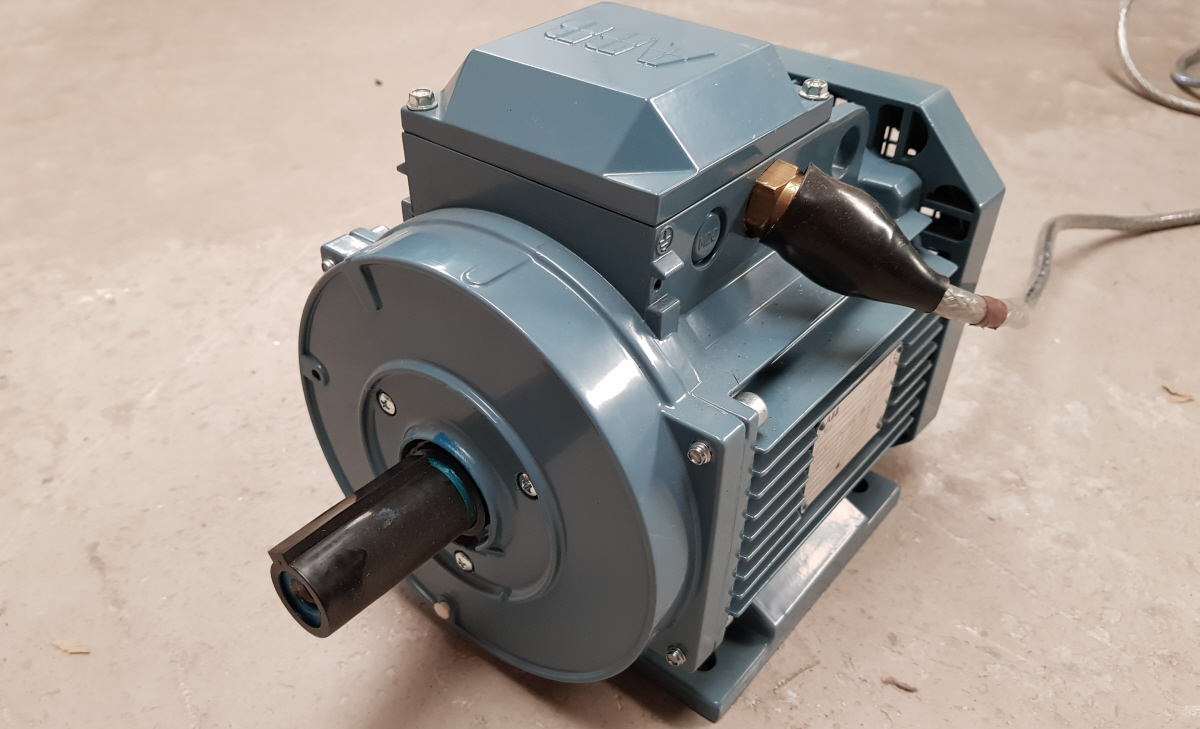The Importance Of High Motor Efficiency
Rob Wood, UK Sales Manager – LV Motors, ABB Limited, says: The world is facing a serious energy challenge. Demand for electricity will grow faster than for any other form of final energy. Pressures to reduce energy
consumption and lower carbon dioxide emissions come from everywhere.
One of the simplest ways to address this challenge is to seize the opportunities for energy reduction that come from using energy more efficiently.
Over 40 percent of generated electricity is consumed by industry, and two-thirds of that energy is used by electric motors.
By using more efficient motors it would be possible to realize huge savings in both energy and carbon dioxide emissions. This has prompted governments worldwide to introduce MEPS (Minimum Energy Performance Standards), setting mandatory minimum efficiency levels for electric motors.
The Importance Of High Motor Efficiency
So what is motor efficiency? Efficiency is simply the ratio of output power to input power and represented as a percentage.
Let’s take a standard motor with a 75 kW output. Achieving this output requires a power input of 80.9 kW. Using the above ratio we get an efficiency of 92.7 percent. This also means that the power losses
amount to 5.9 kW.
Where do these losses come from and how can they be minimised to increase the motor’s efficiency?
Losses can be defined as follows:
Stator iron losses are present due to the energy required to magnetize the core material and includes losses due to creation of eddy currents that flow in the core. They can be decreased by using better and thinner electromagnetic steel and lenghtening the iron core.
Friction and windage losses are present due to the friction in motor bearings and seals, along with air resistance in cooling fans. These can be reduced by correct dimensioning and selection of bearings, and optimised fan and air flow design.
Stator winding losses or I2R losses are present due to the current flow through the resistance of stator winding. They can be reduced by optimising stator slot design with the windings tightly packed to ensure a good slot fill ratio, together with low loss electrical steel laminations to miminise magnetic losses in the stator core.
Rotor losses. The rotor also suffers I2R losses, caused by the rotor currents, as well as iron losses caused by the magnetic flux interacting with the rotor core. These can be reduced by increasing the size of the rotor bars and end rings to produce a lower resistance.
Additional load losses or stray load losses are present due to the leakage flux caused by variations in the windings, mechanical imperfections in the air gap and irregularities in the air gap flux density. They can be reduced by improving slot geometry and minimizing deviation in the air gap.
Unfortunately, losses are an inevitable part of running a motor and since they directly affect efficiency, motor manufacturers are constantly doing their very best to reduce them.
By using higher quality materials, cutting-edge motor designs, and manufacturing in high precision automated factories, losses are kept to a minimum.
This means that with every successive generation of motor design, efficiency gets improved, and contributes to solving part of the global energy challenge.
ABB (ABBN: SIX Swiss Ex) is a pioneering technology leader in electrification products, robotics and motion, industrial automation and power grids, serving customers in utilities, industry and transport & infrastructure globally. Continuing a history of innovation spanning more than 130 years, ABB today is writing the future of industrial digitalization with two clear value propositions: bringing electricity from any power plant to any plug and automating industries from natural resources to finished products. As title partner of Formula E, the fully electric international FIA motorsport class, ABB is pushing the boundaries of e-mobility to contribute to a sustainable future. ABB operates in more than 100 countries with about 135,000 employees. www.abb.com


